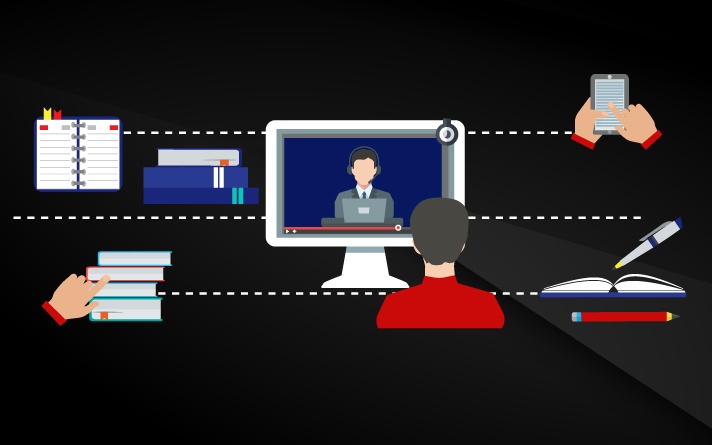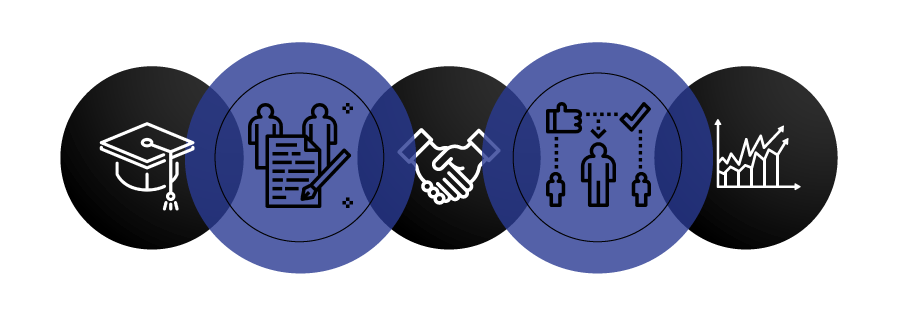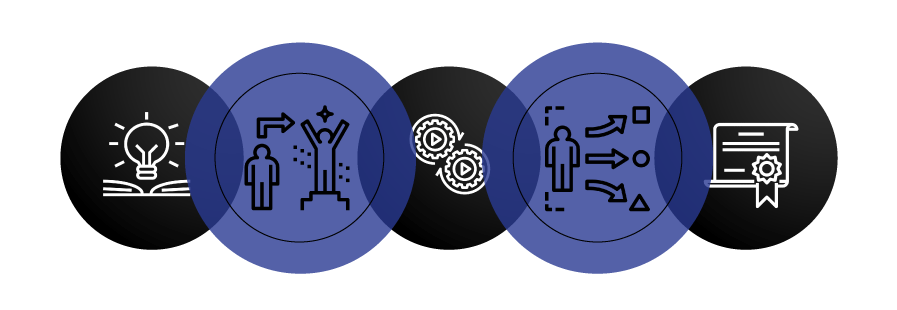
There is the belief that outsourcing is bad for business. That argument certainly holds water if you’ve ever received poor quality work from a contractor. But that doesn’t mean outsourcing is forever harmful. Take retail training for example. As a retailer, it’s not always in your best interest to keep it in-house. In fact, contracting it out can give you a distinct advantage.
1. You’ll be able to tap into outside experience and get a fresh perspective
There is no doubt about the fact that the retail industry is vast and it can get very complicated very quickly. After all, there are many different topics and elements that you’d need to understand thoroughly to be a success.
These include micro and macro space planning, merchandising, inventory control, stock replenishment, and category management to name a few. While it’s not impossible to have a firm grasp of all of these elements, it’s unnecessary to do it alone. It’s the same when attempting to keep all retail training in-house.
Why make it harder for yourself when there is an external company with the relevant experience that can help you? More importantly, a company that will be able to analyse your business from a fresh perspective.
Here’s an example to illustrate our point:
You have a store located in a low LSM area and you have decided to merchandise your items on the shelf from premium to economy. Why did you choose that? It is not ideal for your target market since you’re giving them the impression that you stock costly items. Or, you might have decided to focus on stocking premium brands or high-priced items. That’s the wrong product assortment for your market.
Any shopper walking into the store who sees the premium products will likely believe that you don’t cater to their pocket and walks out in search of another store. That’s lost revenue right there, and it could even result in your store developing a reputation as too expensive to shop.
With specific retail training around best practice merchandising principles, you would have known that it’s better to display your products from economy to premium for your customers and to stock cheaper items that match their price expectations.
2. You’ll be able to save yourself time and money
Developing training materials is both expensive and time-consuming.
From a time perspective, you need to have dedicated internal resources gathering material, researching, developing and then delivering the training materials. That’s if you’d want your training to be of top quality. You would also need to test it thoroughly before you can present it.
There is also the point that if the person who you have tasked with developing the training material isn’t meant to solely train your staff, yet is tied up in training, they could become a wasted resource.
Let’s say, for example, that you’ve recently employed a category manager, and their primary role is to develop category plans for your store clusters. However, since category management is new to your buyers and merchandisers and your store managers don’t fully understand how it can evolve your business, your category manager would need to win them over.
That means that they could very likely spend their first three months working on and delivering training material. Meanwhile, no category plans are developed, and your categories continue to perform poorly.
If you were to outsource your retail training function to a third party instead, your category manager wouldn’t have to spend their time trying to convince your buyers and merchandisers. Instead, they could focus on what you employed them to do in the first place.
By the way, if you do decide to go ahead and train your staff internally on any retail aspect that isn’t within your expertise, you could also find yourself wasting your money too.
Imagine creating custom course material for your software developers when you only have a handful of software engineers to oversee systems integrations internally. That wouldn’t make sense. You’d be better off outsourcing such training to a company that specialises in IT courses and focus on training such as customer service for your in-store staff.

3. You’ll have access to a company that views retail training as its core business
You can quite easily notice the difference between a company that has retail training as part of its core business and another that doesn’t.
For one, there is the expertise factor.
By approaching a business that has the relevant retail training experience and expertise, you’ll have access to specific retail knowledge that you wouldn’t have otherwise.
Since such a company isn’t there to pander to your wishes, they’ll also offer you an objective opinion. While they’ll point out discrepancies around your store - and these errors might be embarrassing - you would need to hear them because only then can you correct any mistakes.
Take planograms as an example. At face value, they could quite easily look like pretty pictures. You could thus attempt to build planograms that are visually appealing and then implement them in-store. But that would be a mistake.
An effective planogram has specific merchandising principles, data analysis and business strategy behind it. For these three aspects to be correct, you’d need access to specific training and most retailers won’t have that unless they seek it elsewhere.
Become an expert around the management of your stock in-store with DotActiv Academy
So what does a robust training capability look like and how can you tell if the company you approach has it?
It includes having a thorough understanding of an e-learning methodology or approach as well as the various e-learning components. There is also the need to have the capacity and capability to research factual information and a structured approach to delivering the content. A learner management system that can manage content and learner access is also a must.
Considering these different elements, would it make sense to invest in in-house retail training? Especially if it’s not part of your core business?
4. You’ll be able to focus on what is core to your business
The last, but certainly not least reason to outsource your retail training comes down to basic logic. By contracting out such a capability, you can focus on what is core to your business.
How so? Let’s look at the results for any retailer who decides to pursue in-house retail training when it is not at the heart of their business.
Consequences include, but are not limited to, the following:
- Staff are not trained on time or consistently;
- Staff receive a one-sided view and approach to training; and
- The in-house retail trainer may not be a subject expert.
In short, it can be catastrophic since if no one checks the content, the wrong information could be shared across your business, which could do long-term damage. There is also the opportunity cost that you need to consider when choosing where to focus your time and energy.
Meanwhile, there are so many positive benefits to outsourcing your training. When correctly approached, all of these can result in you meeting your goals as a retail business.
These include, but are not limited to, the following:
- Your staff can reach their specific KPIs and fulfil their job requirements;
- You’ll be able to focus on tasks that increase your sales and please your customers; and
- You can train your staff as and when needed.
Conclusion
DotActiv Academy is DotActiv’s education portal where you can learn about all things retail and category management. From product placement and pricing strategies to merchandising techniques and the category management process, it’s there.
For more information about the various courses, visit DotActiv Academy here.



